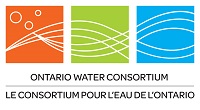Beaty Water Research Centre – Queen’s University
The Beaty Water Research Centre (BWRC) is an interdisciplinary centre dedicated to furthering research, education and outreach around water-related issues. The Centre encourages collaborative research, innovation and education spanning traditional water-related disciplines, as well as non-traditional and emerging disciplines. Our interdisciplinary model facilitates the easy transition of new knowledge and innovation into practice. Activities of the centre fall into the following themes: water governance, water use, water resources and water quality.
Contact: Pascale Champagne (pascale.champagne@queensu.ca) or Jyoti Kotecha (kotechaj@queenu.ca)
Centre for Advancement of Water and Wastewater Technologies (CAWT) – Fleming College
With its state of the art accredited laboratory and indoor/outdoor testing facility, the CAWT conducts, facilitates, and coordinates research on water-related technologies and innovative wastewater treatment technologies. CAWT researchers specialize in emerging treatment methods, cold-climate technologies, filtration and membrane technologies, bioremediation, fixed film bioreactors, ozonation, anaerobic bioreactors, UV treatment, denitrification, greywater treatment, and phosphorus adsorption. The CAWT’s R&D and verification services allow companies to move through the commercialization pathway with confidence in their technology.
Contact: Barbara Siembida-Losch (barbara.siembida-losch@flemingcollege.ca)
Centre for Urban Innovation/Ryerson Urban Water – Ryerson University
Ryerson Urban Water (RUW) aims to be the preeminent collaborative hub for applied research in solving urban water challenges. Thematic pursuits include research, education, policy, think tanks and incubation. The areas of specialization include green infrastructure, water management, urbanized watersheds, wetlands, water/wastewater treatment technologies and indigenous pedagogies.
Contact: Angela Murphy (angela.murphy@ryerson.ca)
G360 Institute for Groundwater Research – University of Guelph
The G360 Institute for Groundwater Research is a multi-disciplinary, field-based academic group founded at the University of Guelph in 2007 by Dr. Beth Parker. Our mission is to enable evidence-informed groundwater resource stewardship by providing world-class training and collaboration to advance knowledge, professional practice, and policy. We specialize in development of methods and tools for high-resolution characterization and monitoring, focusing on fractured bedrock aquifers underlying contaminated industrial sites; sustainability and ecosystem protection; and potential impacts to groundwater from oil and gas development.
Contact: Katelyn Wanka (communications@g360group.org)
Institute for Water Innovation (IWI) – University of Toronto
The Institute for Water Innovation (IWI) at the University of Toronto is a multi-disciplinary, multi-departmental network focused on expediting research and development of advanced water technologies by sharing knowledge, ideas, and resources. IWI strives for global leadership in water research by developing breakthrough technologies that address challenges in:
- Urban Drainage Systems and Water Distribution Networks;
- Chemical and Microbial Characterization of Water Systems;
- Water and Wastewater Treatment (including desalination and industrial waters);
- Remediation and Restoration of Contaminated Waters
Contact: Mandeep Rayat (mandeep.rayat@utoronto.ca)
Interface Institute (Institute for Multi-Hazard Systemic Risk Studies) – McMaster University
The INTERFACE Institute is a multi-disciplinary platform focused on systemic risk assessment, analysis, and management under multiple and interacting hazards within built and natural environment systems across the globe. The Institute works at the interfaces between natural sciences, engineering, social sciences, and health sciences in partnership with private and public sectors and academic institutes worldwide. The INTERFACE Institute aims to enhance the resilience of complex systems by developing systemic risk-based tools through interdisciplinary teamwork.
Contact: Wael El-Dakhakhni (eldak@mcmaster.ca)
Laurier Institute for Water Science – Wilfrid Laurier University
The Laurier Institute for Water Science (LIWS) is a multidisciplinary, collaborative undertaking among research faculty in the Faculty of Arts, the Lazaridis School of Business and Economics and the Faculty of Science. The focus of the institute is on research in three interconnected water-related disciplines:
- Hydrological Sciences: This includes physical, chemical, biogeochemical aspects of hydrology, climatology and hydrogeology.
- Ecology and Biogeochemical Sciences: This includes toxicology, geochemistry, terrestrial and aquatic ecology.
- Public Policy and Management: Issues related to this discipline include policy, economic, governance and legal aspects of water across Canada and internationally.
Contact: Kelly Munkittick (kmunkittrick@wlu.ca)
McMaster Centre for Climate Change – McMaster University
The centre promotes research activities that focus on the study of climate processes, climate change and the human perception and response to these processes and changes. The Centre aims to promote and facilitate education, research activities and collaborations to study and model processes of Earth’s climate system and the impacts of climate change on the environment, ecosystems, water resources and human health. Among the Centre’s research portfolio is a stream focused on water resources and hydroclimate.
Contact: Altaf Arain (arainm@mcmaster.ca)
The Water Institute – University of Waterloo
The University of Waterloo established the Water Institute in 2009 to provide an on-campus network of excellence in water research, education, and innovation, with a particular focus on promoting interdisciplinarity. Water Institute researchers represent a wide breadth of disciplinary expertise with a membership of over 150 faculty members and 300 graduate students, who collectively span all six Waterloo academic faculties. The Water Institute is ranked among the world’s top water research organizations.
Contact: Kevin Boehmer (kboehmer@uwaterloo.ca)
United Nations University Institute for Water, Environment and Health (UNU-INWEH) – McMaster University
“UNU-INWEH acts as the ‘UN Think Tank on Water’ and contributes to the resolution of the global water challenge through a programme of applied research and education. It conceives, develops and manages water initiatives that help developing countries build their capacity for improvements in human and ecosystem health, and overall reduction in poverty.” Research areas include: water-related sustainable development goals; unconventional water resources; managing water-related health risks; water security; and managing water resources variability and risks for increased resilience. Water Without Borders (WWB) is a collaborative graduate programme, between UNU-INWEH and McMaster University. It links the rigour of a traditional university graduate program with the professional policy training and experience of an international centre of excellence focused on the global water crisis. The primary goal of WWB is to develop highly qualified personnel to fill a growing global societal need for science, service, policy and practice, around the fundamental human issue of maintaining water resources now and in the future. Issues of provision, access, quality, equity, conflict, distribution, change, governance, and environmental integrity are all of paramount importance to studying and responding to water issues.
Contact: Nancy Doubleday (doublen@mcmaster.ca) or UNU-INWEH (contact.inweh@unu.edu)

